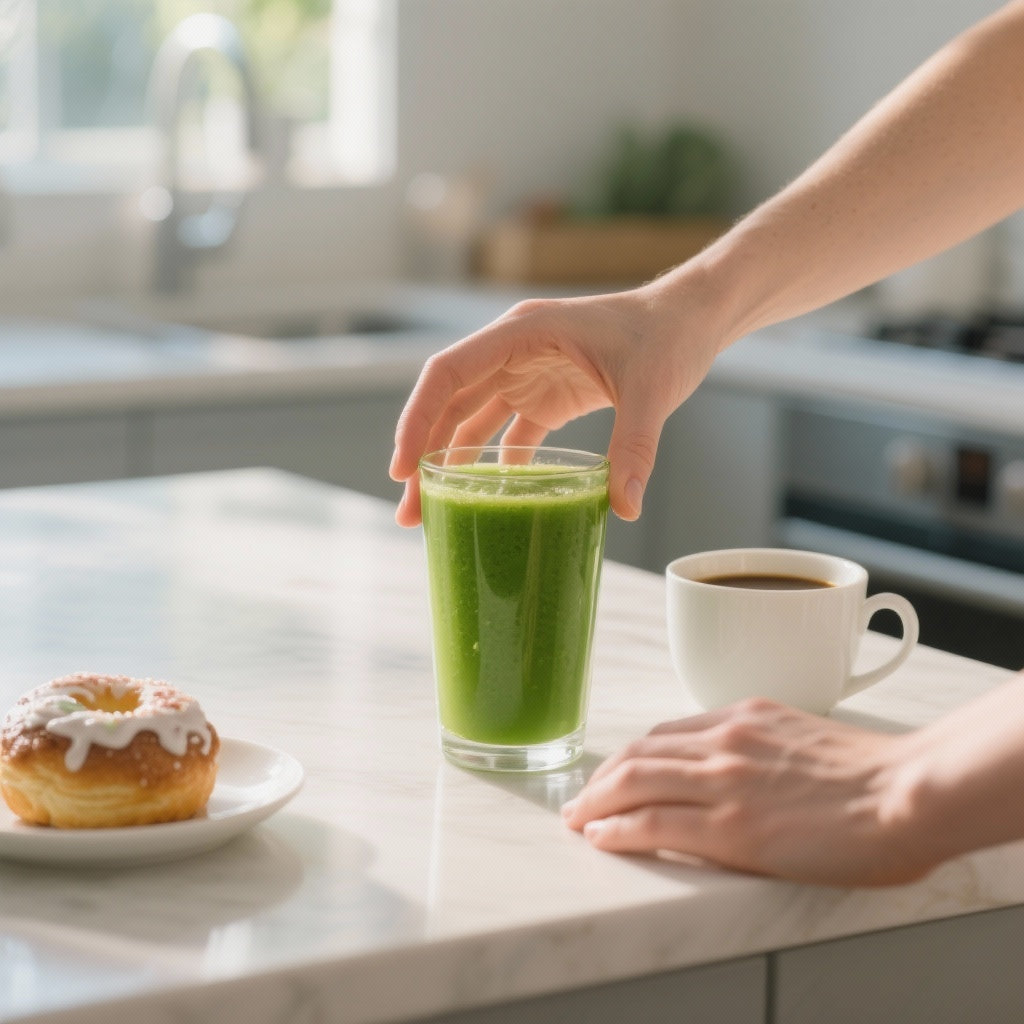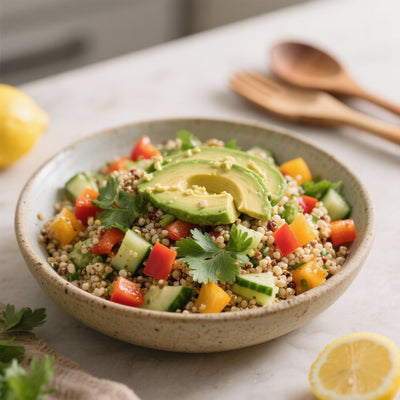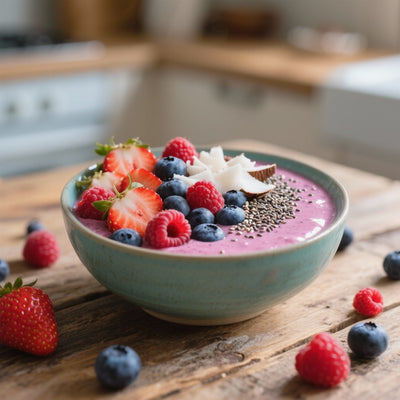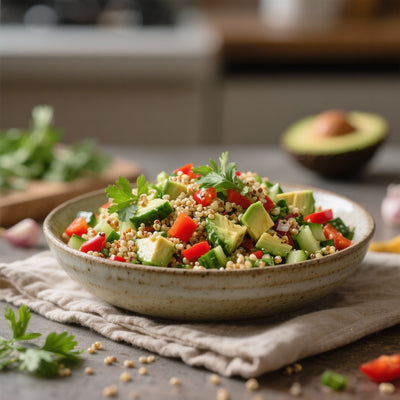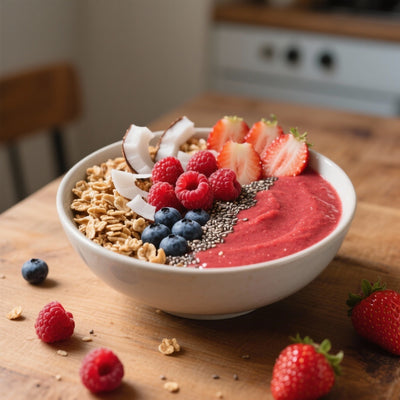12 daily habits that sabotage your detox efforts (and their healthy alternatives)
You embarked on a detox program with motivation, ready to purify your body and regain your energy. You drink your green juices, you eat more vegetables, but the desired results—that vitality, that radiant skin, that overall well-being—seem to elude you. Frustration sets in. What if the problem doesn't lie with your program, but with small, seemingly harmless daily habits that are sabotaging your efforts behind the scenes?
Often, the success of a detox lies not only in what we add to our routine, but especially in what we remove from it. It's these automatic, ingrained daily habits that can overload our elimination organs (liver, kidneys, intestines) and negate the benefits of our most virtuous actions. In this article, we'll unmask these 12 silent saboteurs and offer simple, healthy alternatives to finally allow your body to fully regenerate.
The 12 Habits That Are Sabotaging Your Detox
Prepare to rethink some of your habits. Each point below is an opportunity to transform a negative action into a powerful lever for your well-being.
1. Start the day with a sweet coffee
The quintessential morning ritual for many. Yet, a coffee, especially if it's sweet and accompanied by milk, is a bad start to a detoxifying process. Caffeine can be an aggressive stimulant for the adrenal glands, while sugar causes an immediate insulin spike. The liver, a key organ in detoxification, then has to manage this influx of sugar and stimulants before it has even begun its natural morning cleansing work. It's like asking a marathon runner to sprint from the very first meter.
The healthy alternative: Replace your coffee with a glass of warm water and the juice of half a fresh lemon. This simple drink helps rehydrate the body after the night, gently stimulates digestion, and supports liver function thanks to its alkalizing properties. If you do crave a hot beverage, a quality green tea, rich in antioxidants, is an excellent option.
2. Relying on processed "healthy" snacks
Supermarket shelves are overflowing with cereal bars, chocolate-covered rice cakes, and fruit yogurts labeled "high in fiber" or "low-fat." The reality is often quite different. These products are frequently loaded with hidden sugars, artificial sweeteners, preservatives, and low-quality oils. They create inflammation and put extra strain on your digestive system and liver, completely defeating the purpose of detoxification.
"The food industry's marketing is very effective at masking the true nature of a product. The number one enemy of a successful detox is added sugar, and it hides where you least expect it."
The healthy alternative: Prepare your own snacks. A handful of unsalted almonds, an apple, carrot sticks with homemade hummus, or plain yogurt (dairy or plant-based) with a few fresh berries. For more ideas, explore our quick and easy recipes .
3. Not drinking enough pure water
This is the most common and perhaps the most damaging mistake. Water is the primary vehicle for eliminating toxins. If you are dehydrated, your kidneys cannot effectively filter waste, your digestion slows down, and toxins accumulate. Thinking that juices, teas, or soups are enough is a mistake; nothing replaces pure water for deep drainage.
The healthy alternative: Aim for 1.5 to 2 liters of pure water per day, between meals. Keep a large glass bottle or reusable water bottle on your desk as a reminder. For a change of pace, infuse your water with cucumber slices, mint leaves, or pieces of ginger.
4. Practicing a sport that is too intense
Exercise is beneficial, but during a detox period, the body is in "repair" mode and has fewer energy reserves. Excessive physical activity (HIIT, CrossFit, long-distance running) can generate significant oxidative stress, produce lactic acid, and release stress hormones like cortisol, which overloads the body instead of helping it.
The healthy alternative: Opt for gentle activities that promote lymphatic circulation and elimination. Yoga, Pilates, brisk walking in nature, stretching, or a few laps in the pool are perfect. They activate the body without exhausting it. Discover suitable routines on our lifestyle blog .
5. Neglecting the quality and quantity of sleep
It is during the night that the body performs its most important work of cleansing and cellular regeneration, particularly in the brain and liver. Going to bed late, being exposed to the blue light of screens before sleep, or having restless sleep prevents these vital processes from functioning properly. Chronic sleep deprivation is a major source of stress for the body.
The healthy alternative: Establish a sleep routine. Go to bed and wake up at regular times. Turn off all screens at least an hour before bedtime. Read a book, take a warm bath, listen to soft music, or practice a few minutes of meditation to prepare your body and mind for rest.
6. Exposure to environmental toxins
It is counterproductive to cleanse your body from the inside while exposing it to external toxins. Chemical household products, pesticides on non-organic food, phthalates and parabens in cosmetics, and synthetic fragrances are absorbed through the skin and lungs, adding unnecessary work for your elimination organs.
The healthy alternative: Ventilate your home daily. Opt for natural cleaning products (white vinegar, baking soda). Choose cosmetics with simple, organic ingredients. Wash your fruits and vegetables thoroughly, and choose organic whenever possible, especially for those most exposed to pesticides.
7. Drinking fruit juices instead of vegetables
Fruit juices, even freshly squeezed, are very high in sugar (fructose) and lack fiber. This causes a rapid spike in blood sugar, which puts stress on the pancreas and liver. The famous morning glass of orange juice is one of the worst detox saboteurs.
The healthy alternative: Opt for vegetable juices, with just one piece of fruit (apple, pear) to soften the taste. Even better: choose smoothies. By blending the whole fruit or vegetable, you retain the valuable fiber that slows down sugar absorption and nourishes your gut microbiota, a key player in elimination.
8. Ignoring the impact of chronic stress
Stress is a toxin in its own right. A state of chronic stress maintains high levels of cortisol in the blood. This hormone promotes inflammation, disrupts digestion, depletes the adrenal glands, and can even encourage fat storage, particularly in the abdominal area. You can have the most perfect diet in the world, but if your mind is constantly racing, your body won't be able to detoxify.
The healthy alternative: Incorporate stress management practices into your daily routine. Even 5 minutes of mindful breathing can make a difference. Meditation, heart coherence exercises, spending time in nature, or journaling are excellent tools. Find what resonates with you on our information blog .
9. Eat a late and hearty dinner
While you sleep, your body should focus on repair and detoxification, not digesting a heavy meal. Eating a large dinner late forces your digestive system to work all night, diverting energy from cleansing processes. This can lead to poor sleep, bloating, and a heavy feeling upon waking.
The healthy alternative: Try to eat dinner at least 3 hours before going to bed. Prepare a light meal, mostly plant-based: soup, a large mixed salad, steamed vegetables with a small portion of easily digestible protein (fish, lentils).
10. Consume "light" products and sweeteners
Thinking you're doing the right thing, you replace sugar with aspartame or other artificial sweeteners. This is a serious mistake. These chemicals are foreign to the body. Studies show they can disrupt the balance of the gut microbiota, increase sugar cravings, and confuse the brain's satiety signals. The liver also has to work to metabolize them.
The healthy alternative: The goal is to reduce your addiction to sweet tastes. Gradually decrease the amount of sugar you consume. If necessary, use natural alternatives sparingly, such as pure (undiluted) stevia or a little good-quality maple syrup.
11. Lack of dietary fiber
Fiber acts like a sponge, absorbing toxins, excess cholesterol, and metabolic waste, and escorting them out of the body. A diet low in fiber (based on refined foods and few vegetables) leads to constipation or slow transit, meaning toxins remain in your colon longer and can be reabsorbed.
The healthy alternative: Put fiber in every meal! Think green leafy vegetables (spinach, kale), root vegetables (carrots, parsnips), legumes (lentils, chickpeas), ground flax seeds, chia seeds and whole grains (quinoa, buckwheat).
12. Eating on autopilot
Eating in front of a screen, while working, or walking hinders proper digestion. The distracted brain fails to send the correct signals for the production of digestive enzymes. Furthermore, it leads us to eat faster, chew poorly, and not feel full. Undigested food ferments in the intestines, causing bloating, gas, and toxins.
The healthy alternative: Practice mindful eating. Take 15 to 20 minutes to sit down, without distractions. Observe your plate, smell the aromas. Chew each bite slowly. This simple habit transforms digestion and dramatically improves nutrient absorption.
Conclusion: Detox is a marathon, not a sprint
Detoxification isn't a quick fix lasting a few days, but rather the adoption of a set of practices that are kind to your body. As you've seen, the success of your efforts depends less on drastic measures than on correcting small, everyday habits.
Don't feel overwhelmed. Choose one or two habits from this list and focus on their healthy alternatives this week. Once you've integrated them, move on to the next ones. Every small step is a big victory for your well-being. Your body will thank you with renewed energy and clarity.
Which habit will you choose to change first? Share your goal in the comments!
